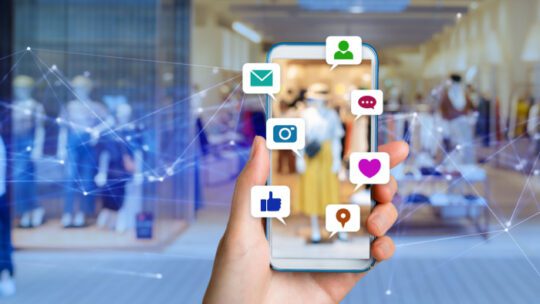
In today’s data roundup, we take a look back at measurable trends and issues that resonated in February. In particular, we focus on the Super Bowl, corporate reputation, influencer marketing and AI.
The Super Bowl
In the weeks leading up to the Super Bowl, brands and their ads were getting into the game by stirring up a social media frenzy.
With the game airing Feb. 12, Sprout Social tracked Super Bowl conversations on social media from Jan. 8 to Feb 5. The top-five brands, by engagement, prior to the game, were:
- PopCorners
- Squarespace
- Rakuten
- Doritos
- Bud Light
Compare that with the top-five brands, by engagement, on game day:
- Tubi
- PopCorners
- Avocados from Mexico
- Doritos
- Ram
Only PopCorners and Doritos overlap. But, according to Sprout Social, the biggest brand winner (on social) on Super Bowl Sunday was Fenty, whose product placement in Rihanna’s halftime show (not even an actual commercial) garnered over 16K mentions for over 180K engagements.
Rihanna really said:
“I don’t need no men in my halftime show and I’m gonna promote Fenty Beauty whether you like it or not.”#SuperBowl pic.twitter.com/tLcuFBh0vP
— Andy Lalwani (@AndyLalwani) February 13, 2023
So, after all is said and done, is the $7 million price tag worth it? According to a new study from behavioral research company Veylinx, it looks like it is, at least if your target demographic is women. According to the data, Pepsi Zero Sugar saw a 45% increase in demand during the week after the Super Bowl versus the week before the game. This, compared with an 18% increase in demand from all respondents.
Corporate Reputation, Purpose and Social Issues
Signal AI has released its 2022 results of The Signal AI 500. The results provide a global reputation ranking of the world's most talked-about companies, spanning more than 20 industries.
Amid economic uncertainty, businesses leaned into messaging around talent, philanthropy, climate and purpose. However, topics such as stewardship and financials accounted for over 40% of all coverage.
While the tech industry saw the largest volume of coverage, it also saw the most negative coverage, thanks in part to many of the recent layoff announcements.
At the same time, 38% of Americans believe that companies are speaking out too much on social issues, according to Stagwell's Feb. 10-12 consumer sentiment tracking survey. And, 68% of respondents think that companies speaking out on these issues is a marketing tactic. This is a 12% increase from July 2022.
The Influence of Influencers
In a recent survey from Matter Communications, 81% of consumers have either purchased or considered purchasing a product or service after seeing friends, family or influencers post about it. A noted downward trend compared with the 2020 version of the survey, only 11% of consumers prefer celebrity influencers (compared with 17-22%), which correlates with the 39% of respondents who said authenticity was the most important attribute when learning about a company, product or brand.
It's no surprise, then, that brands are dedicating more resources to this strategy. In fact, according to the latest from Open Influence, 13% of brands are dedicating at least $1 million to influencer marketing this year, and 77% of brand marketing leaders say they run paid social behind an influencer marketing campaign.
Meanwhile, in AI News…
Thirty-five percent of Americans can’t tell the difference between real and AI powered images, according to Concured.
And while the jury is still out on how communicators can, and should, use tools like chatGPT, only 16% of respondents to a Pew Research study describe this as a major advance for the news media. In fact, 45% of survey respondents believe it it not an advance at all.
And in another Pew Research study, 38% of Americans are more concerned than excited about the use of AI in daily life, compared with 15% who are more excited.
Erika Bradbury is editorial director for PRNEWS. Reach her at [email protected].
